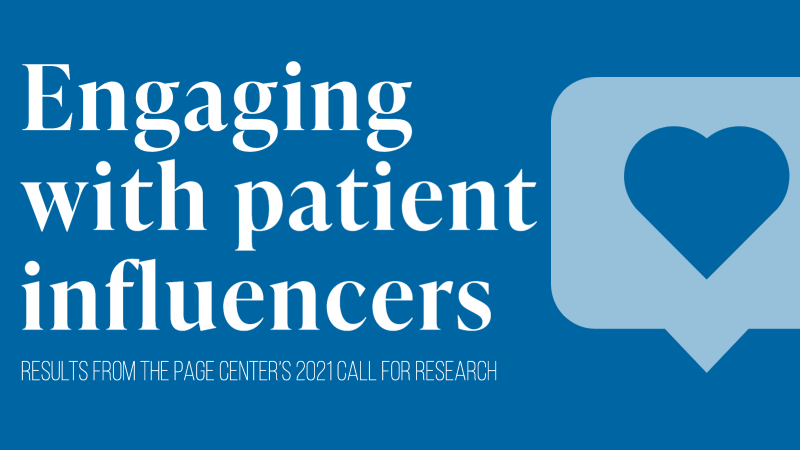The ethical considerations of patient influencers
April 24, 2023

By Erin Willis, University of Colorado-Boulder; Erin Schauster, University of Colorado-Boulder; Maria Len-Rios, University of Georgia; and Marjorie Delbaere, University of Saskatchewan
Social media influencers are gaining in popularity and in influence. Patient influence is a strategic practice used by pharmaceutical marketers to engage directly with consumers. It reflects the patient-centered approach to healthcare and consumers’ reliance on influencer recommendations. Patient influencers carefully curate and share their disease experience with followers attempting to create an emotional bond and, at times, monetize their following by partnering with pharmaceutical brands.
Persuasive strategies can serve as a powerful communication tool for social good. From both a practical and ethical perspective, social media strategies rely on authenticity, honesty, and respect for audiences. Ethics of care suggests that communication tools are essential for building and creating caring relationships. While subjective and relational, ethics of care is grounded in reciprocity and an attention to another person’s needs and vulnerability. Ethics of care is concerned with empathy, sensitivity and responsiveness while caring for the needs of others.
The current study examined the ethical and caring nature of patient influencers on social media using in-depth interviews with 27 patient influencers. (Nineteen females and eight males; 18 of the participants were White, four participants were Hispanic, four were African American, and one participant identified as Asian American.)
The participants were diagnosed with various conditions, including lupus, fibromyalgia, Parkinson’s disease, asthma, HIV, and more.
We collaborated with Health Union, a digital health company that connects patients with healthcare opportunities, to identify a sample of patient influencers. Initially, Health Union provided a curated list of patient influencers to interview. We then used snowball sampling to recruit more patient influencers to participate in the study. Snowball sampling is when existing study participants refer future participants.
Our findings suggest that patient influencers engage in caring relationships with followers. They engage in honest and respectful communication, are sensitive when sharing, feel a sense of responsibility toward other patients and serve as connective tissue to help build understanding among a wide network of stakeholders.
Patient influencers also attend to other patients’ needs by considering their needs as an extension of their own. These relationships, between the patient influencers and other patients, are mutually beneficial, and indicative of a community. Lastly, our study found that participants exhibited moral awareness and moral maturity by putting patients’ needs at the forefront of decision making.
The findings of this study are important to patient-centered care and may inform communication strategies for patient influencers and other social media strategies. As patients themselves, patient influencers have interest in the success of social media practices used to encourage healthcare decisions.
Therefore, patient influence strategies should be directed by influencers and not by their partners such as pharmaceutical companies. While in collaboration with the stakeholders in their network, patient influencers have the empathetic understanding needed to guide information sharing, community building, and other social strategies that empower patients to make decisions about their health.
It is not yet understood the effects of the practice of patient influencers. Since this is a new and rapidly growing phenomenon, little research has examined patient influencers in the academic or industry literatures. Social media influencers have not slowed in popularity, and continue to be a lucrative marketing investment, according to eMarketer.
Pharmaceutical companies have quickly adopted strategic social media strategies to target and connect directly with patients, shape consumers’ perceptions, and build relationships with younger audiences in niche market segments. Further work should examine the regulations related to social media marketing of prescription drugs and the monitoring of content of patient influencers.
This research was funded by a 2021 Page/Johnson Legacy Scholar Grant from a call for proposals on ethics of care.

